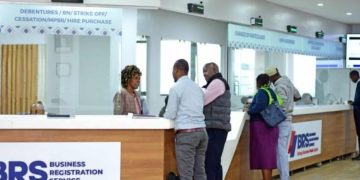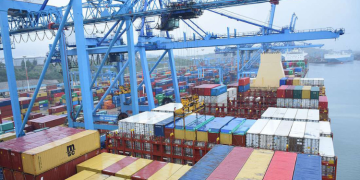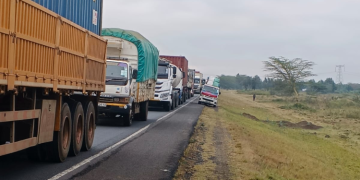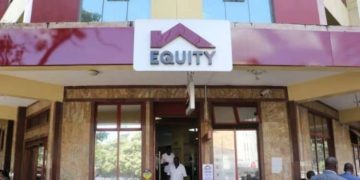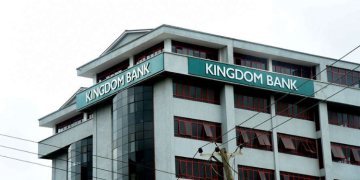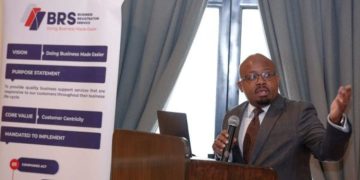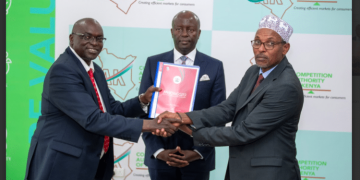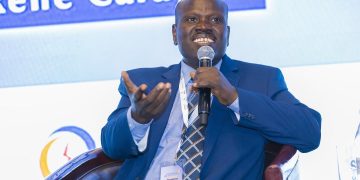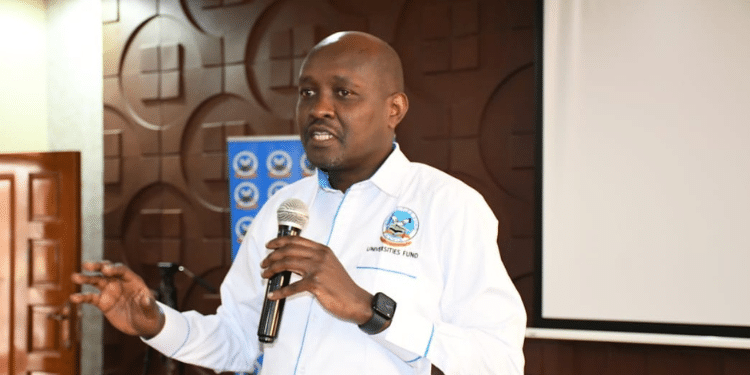The Higher Education Loans Board (HELB) has revealed that it might not be able to fund new students for the September intake.
HELB CEO Geoffrey Monari briefed the National Assembly Committee on Education that the Board is experiencing a significant funding shortfall in 2024.
Monari stated that HELB disbursed Ksh26.1 billion to 322,338 university students and Ksh7.9 billion to 225,048 Technical and Vocational Education and Training (TVET) trainees during the 2024/25 financial year.
However, over 160,000 eligible students were not funded due to a budget shortfall of Ksh13.7 billion.
HELB required Ksh48 billion in the last financial year but received only Ksh26 billion.
Monari confirmed that HELB does not currently possess the funds to issue new student loans in 2025.
“In this new financial year, we project that the deficit will be Ksh36.1 billion, affecting 468,237 students,” Monari stated.
Universities and TVETs Facing Difficulties
In 2024, Monari noted that some students received full funding while others only received maintenance money.
However, HELB prioritised student upkeep to settle unrest, which has impacted universities and TVETs.
Monari explained that these institutions are struggling to remain operational after HELB was unable to remit tuition fees.
“That’s why you can see the students are not making as much noise because they received their upkeep money, but the tuition fees were not paid to the institutions. Yes, this is where the problem lies. So, the institutions, universities, and TVET colleges are the ones suffering,” he added.
HELB Tracking Loan Defaulters
CEO Monari disclosed that the Board has recorded 1.03 million matured loan accounts, of which 293,122 are non-performing, valued at Ksh33.2 billion.
“We conducted a study and found that it takes an average of six years for some graduates to find employment. Even those who are employed often face underemployment, making repayment difficult,” Monari told the Committee.
He further explained that HELB recovered Ksh5.21 billion in the 2024/25 financial year — an 11% increase from the previous year.
Also Read: How to Apply for HELB Loan Using Mobile App
This success was achieved through collaborations with the Kenya Revenue Authority (KRA) and employer audits, which helped trace over 17,000 defaulters.
Additionally, partnership with the Civil Registration Services resulted in writing off Ksh347 million in deceased borrower accounts.
To tackle rising defaults, Monari indicated HELB is exploring an income-contingent repayment (ICR) model and flexible options such as weekly payments aimed at informal sector workers.
Also Read: KUCCPS Opens Portal for 2025 Inter-University Transfers: How to Apply
Access to KRA and NTSA Data
Furthermore, HELB seeks access to data from KRA and the National Transport and Safety Authority (NTSA), among other personal information, to monitor defaulters and enforce repayment.
“Propose to enact legislation to grant HELB statutory access to third-party data from relevant institutions such as KRA. This will enhance targeting of financial aid and improve tracing and enforcement mechanisms,” Monari explained.
HELB has also proposed legislation to establish a dedicated student education levy on employers or to ring-fence 3% of the Value Added Tax (VAT) charged, for direct allocation to HELB.
This approach draws inspiration from countries like Ghana, where the Ghana Education Trust Fund (GETFund) is financed through a dedicated 2.5% VAT share to sustainably support tertiary education.
“Student education levy on employers to reinforce 3 percent out of the existing percentage VAT charged for direct allocation to HELB,” Monari said.
Follow our WhatsApp Channel and X Account for real-time news updates.



